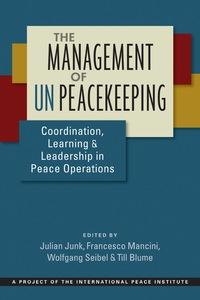Question
Nancy is a Chief Financial Officer for Nibble Snacks Inc. In her role she is responsible for overseeing a team of analysts, accountants, and project
Nancy is a Chief Financial Officer for Nibble Snacks Inc. In her role she is responsible for overseeing a team of analysts, accountants, and project managers. As the CFO she has oversight and ultimate responsible for signing off on all contracts for Nibble Snacks Inc. The company is rolling out a new line of organic, sustainably farmed health snacks to match with trends in the consumer market. This rollout will require a massive marketing campaign, bigger than anything Nibble Snacks has done before. They opened up a bidding process to several marketing agencies to compete for the contract. In the past, Nibble Snacks has used US Marketing Partners (USMP), a mid-sized marketing firm based in Nibble Snacks' home state. Nancy has come to know the executives at USMP well and they have developed a trusting relationship. It is very likely the scope of this new marketing campaign is beyond USMPs capacity to deliver, but because they have been loyal partners for so long, Nibble Snacks is entertaining them in the bidding process. Nancy believes that loyalty and trust are some of the most important traits to successful business relationships, and because of this she regularly talks up USMP in executive meetings. Two other large marketing firms have come back with more competitive bids than USMP. Both marketing firms have strong reputations in the industry for delivering successful campaigns. However, Nancy uses her position to successfully advocate for USMP to get the contract because they are a known entity. Even though it is likely to cost Nibble Snacks Inc. more money, and runs a greater risk of failure, Nancy is a loyal person and believes that loyalty makes up the difference.
Prompt Compose a 125-200 word response for each scenario that addresses the following.
1. Identify the most prevalent "ethical theory" used by the decision-maker (i.e., virtues, deontology, consequentialism). Defend this choice by briefly explaining the ethical theory AND citing specific examples from the scenario to support your decision.
2. After determining which theory was most prevalent in the decision-making process, the student is to discuss both the beneficial and problematic aspects of the decision (based on the prevalent "ethical theory applied in the scenario). Then using the comprehensive set of ethical theories (applying all three "ethical theories"), how could the decision be improved? In other words, if parts of the decision were "harmful", how could other "ethical theories" help improve the decision?
Step by Step Solution
There are 3 Steps involved in it
Step: 1

Get Instant Access to Expert-Tailored Solutions
See step-by-step solutions with expert insights and AI powered tools for academic success
Step: 2

Step: 3

Ace Your Homework with AI
Get the answers you need in no time with our AI-driven, step-by-step assistance
Get Started


